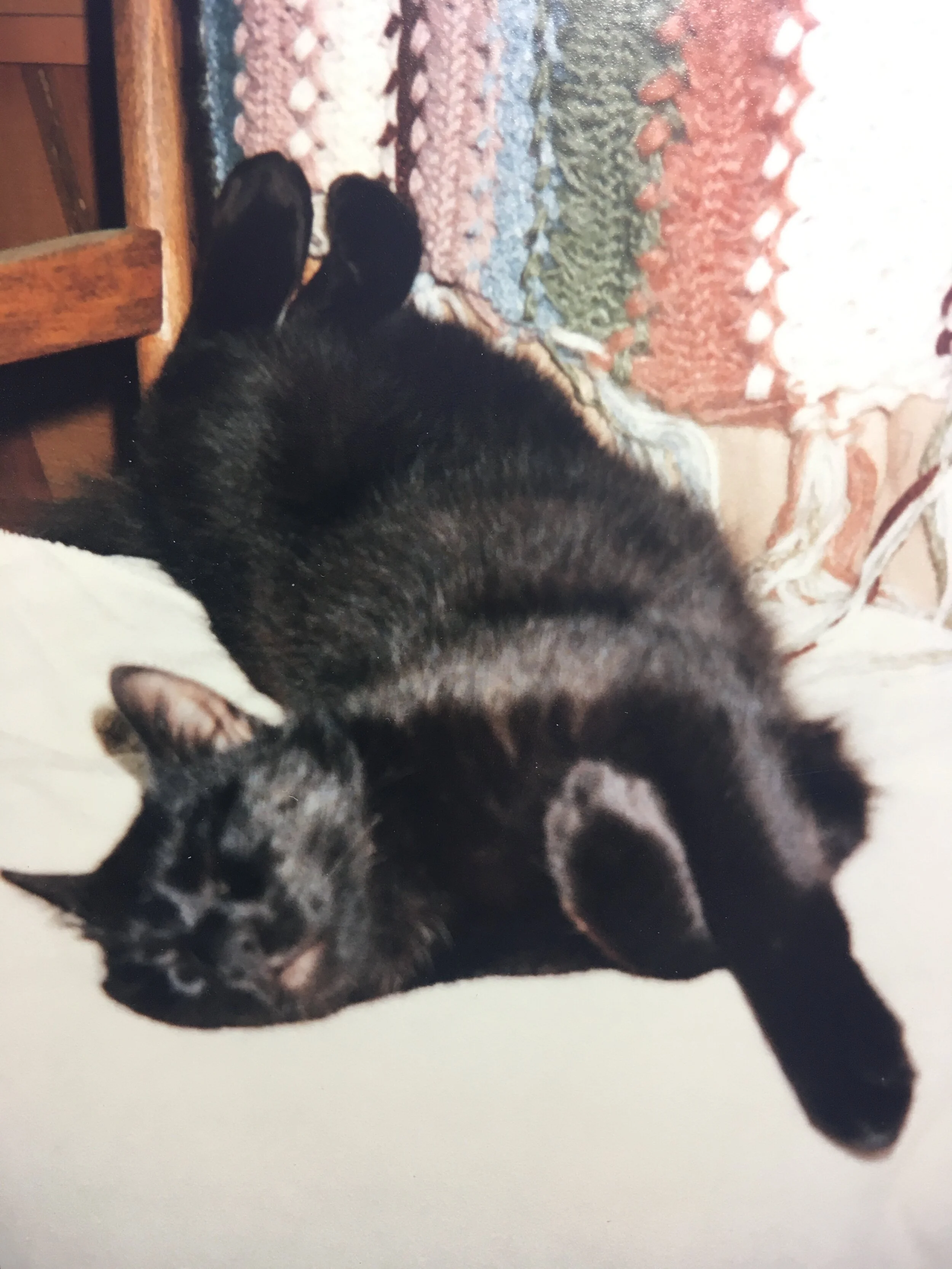I'm still looking for my good buddy. He's been gone a week, but I can't stop expecting him at my door. Any moment now he'll come darting out of the brush across the street, jump the fence in two smooth moves, and scramble across the lawn to where I stand on the porch. He'll greet me, as he always does, with a plaintive cry and a friendly glance before sauntering inside to check on breakfast.
This practice of keeping pets is awful peculiar. What prompts a person to feed and care for an animal, bringing it into one's home and one's heart? How is it we can bond so tightly with critters of another species?
Domesticated animals often have practical benefits, of course. Some we eat, some we ride, and others we just observe. But all too often a pet invades the inner sanctum of the soul, touching on needs and desires no mere person could ever meet.
I call him Bearcat because he is black and stocky and when he runs he looks like a bear cub; his soft cry, too, is cub-like. Bearcat came into my life several years ago when a neighbor moved out and left him behind. He was a kitten then and I couldn't help feeling sorry for him, alone with an empty house. I fed him on the porch for a week or so, thinking his owners would return for him. They never did and soon it was apparent that I had adopted him, or vice versa.
Pets are supposedly therapeutic. Studies of patients recovering from severe ailments have found pet ownership to be one of the strongest predictors of survival. Psychiatric patients with pets experience greater self-confidence. Children with pets seem to be more empathetic. Stroking a cat's fur lowers blood pressure, slows down the heart rate, and reduces stress in both the animal and the stroker.
Bearcat's first few weeks with us were traumatic. He suffered from ear mites and the twice daily treatments tested our friendship. But he stayed around, despite visits to the vet for shots and neutering, purring appreciatively at our touch and responding to the meals we provided with a generous appetite.
He grew into a handsome, healthy cat with a thick glossy coat and a kind disposition. Dogs bothered him some, but he was quick-witted and his spirits always recovered swiftly after some narrow escape.
There are close to 60 million cats in this country, according to The Humane Society. Ours is one of the millions of households that shelter them. Kept inside, the expected lifespan of a cat is 13-17 years. Allowed to roam outdoors, the average cat life is only two-and-a-half years.
Though now I wish I'd limited his outings (one night at least), Bearcat was too much in love with open spaces and wild smells to be content inside. He met life with unrestrained enthusiasm and I would not have wanted, no matter the cost, to have stolen that away.
But nature is extraordinarily indifferent to such things. What endeared that cat to me, his spirit and his affections, was no match for the speeding truck, bright lights at full glare, that swept through our neighborhood. Nature was deaf to the cries that faded into the night as the truck, and its driver, hurried on down the road.
And even though I understand that cats are prone to die this way, at any age, and realize intellectually that pets' lives don't carry the same weight as peoples', it is still a difficult thing to shrug my shoulders and accept the loss.




